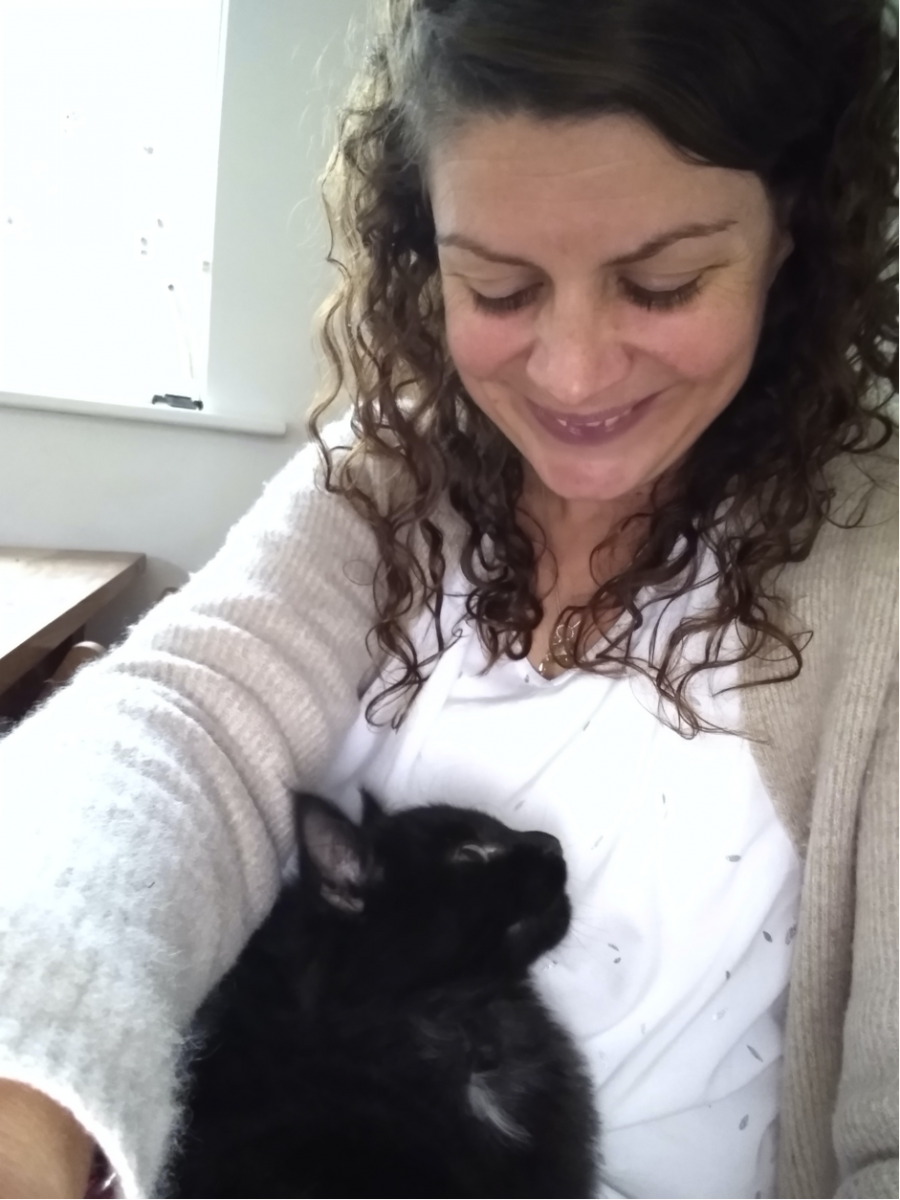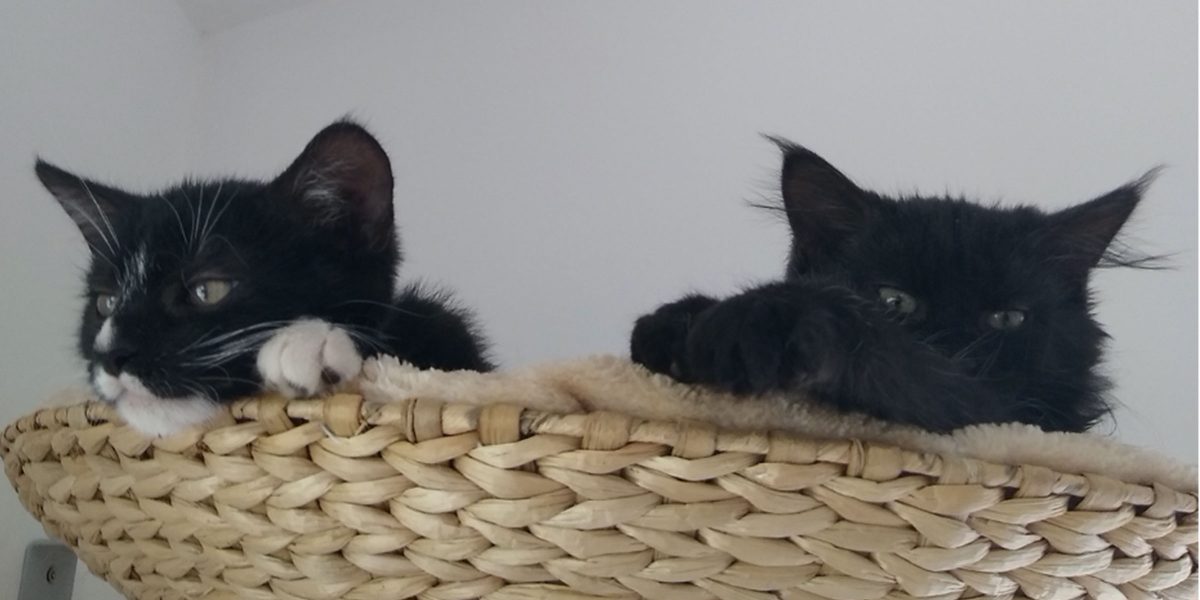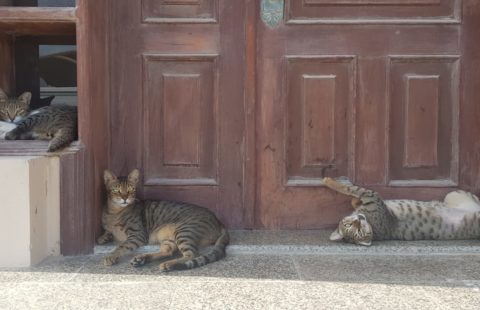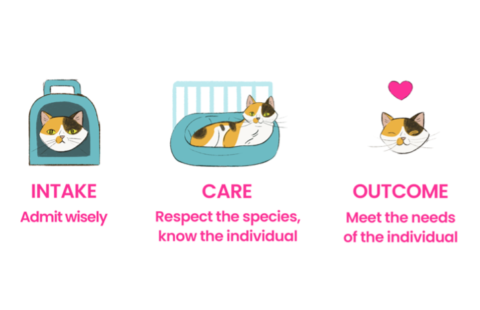Foster homes for unowned cats can be a lifeline for many pet cats that find themselves looking for a new home. A home environment can be a far less stressful one for cats that have lived with people as pets previously and can allow their true personalities to show, meaning they can be better matched to their perfect home.
Kittens in particular benefit from experiencing the sounds and sights of a home environment providing them with much needed socialisation and handling to ensure they make great pet cats as adults. Across the globe a network of cat fosterers volunteer their time to help cats and kittens, providing invaluable care for cats in need.
We spoke with our very own, Sarah Ellis (Head of Cat Advocacy for International Cat Care), who is currently fostering three kittens for a UK charity, Cats in Distress, about her experiences and why she decided to give her time to foster.
Tell us about the kittens you are fostering currently and how did you come to be involved?
We had been thinking of getting a kitten for some time as we lost one of our cats in March last year. Having two young children at home and another cat, it was really important to us to take on a kitten that was confident and friendly with both people and other cats. That is quite an ask and very difficult to assess at the best of times, never mind during a lockdown situation. But the lockdown situation got me thinking about the possibility of fostering kittens and potentially formally adopting one of the fosters if it met our needs (and we met its!). I had fostered quite a bit in the past but not since having children and with me now working from home and only working part-time, we discussed as a family and felt we had all the resources needed. We contacted Cats in Distress and they assessed our suitability and skill set in rearing kittens and then it was a waiting game until some kittens in need came in.
We received three kittens, all from the same litter. They were reported by a concerned resident to Cats in Distress who had found them in her garden. Her particular concern was that the mother appeared to be leaving them for large periods of time and they appeared very small and weak. It is not uncommon for mothers to leave older kittens for some time while she is out hunting and often disturbing their nest can caused the mother to keep a wary distance, particularly if she is not well socialised to people herself. Sadly, in this case, the mother was, for an unknown reason, not feeding the kittens enough and Cats in Distress made the decision to bring the kittens into their care as they appeared extremely underweight. They came to us the same day, two boys, one longhair black and one shorthair black and white and a very small long-haired black girl.
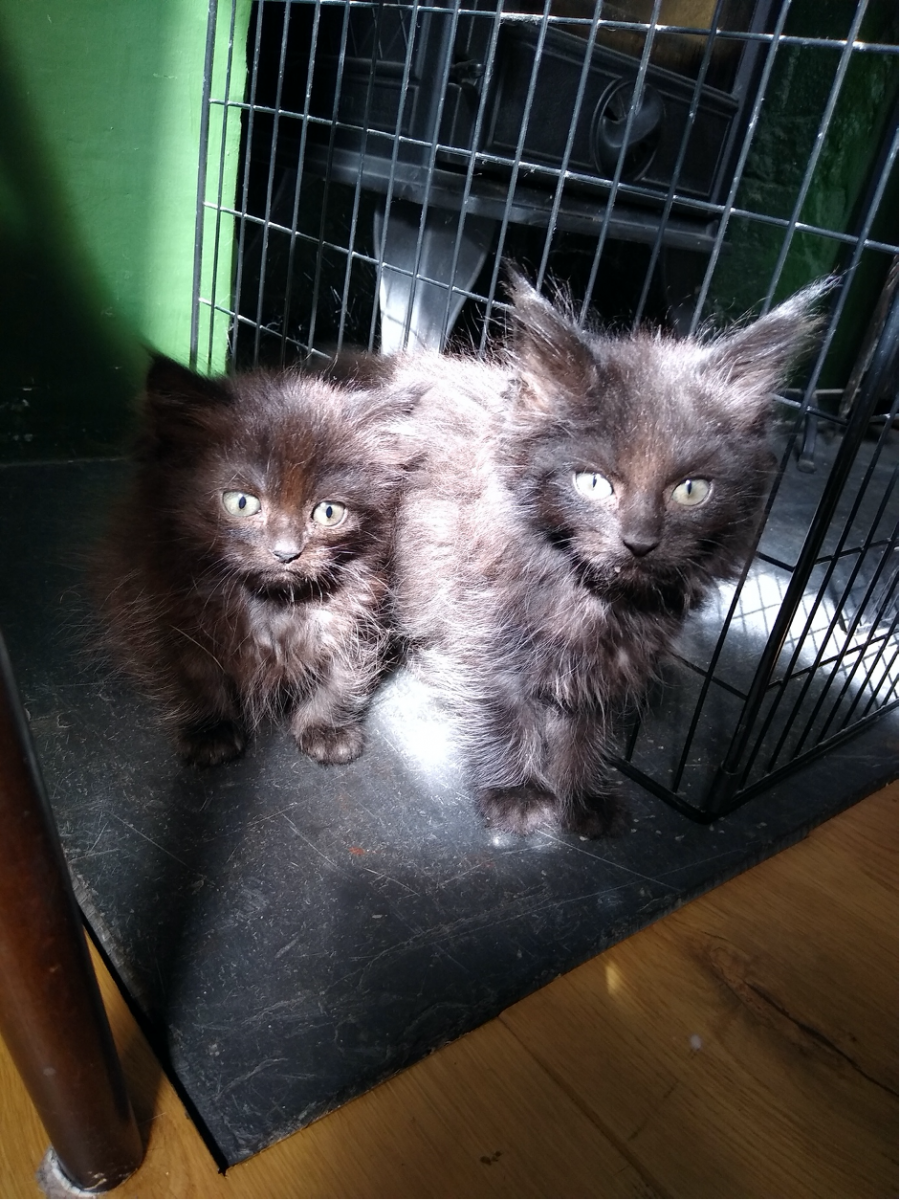
Why do you think fostering cats and kittens can be so important for unowned cats?
For cats and kittens that are suited to living in a pet home, we are so much better able to meet their needs from having them in a home than we can in a cattery environment. Foster cats in people’s homes have more opportunity to be a pet cat, to play, to explore, to be groomed, to enjoy social interactions with people. I enjoy nothing more than seeing my foster kittens curl up in front of the log burner and think to myself this is a better life than being in a cattery pen. By spending so much more time with them in my home than the Cats in Distress team could in a cattery situation, I get to know their temperaments and their likes and dislikes at such a greater depth that I can feedback to the charity which helps with matching the kittens to the right owners. In addition, it costs less for the charities who are often so financially stretched as they rely so heavily on donations and the experience of fostering is unbelievable rewarding. While some may find it hard initially to see their foster cats move on to their permanent home, there is nothing nicer knowing you played a part in that cat’s journey to finding a stable and caring home which understands the need of the cat.
What have been the challenges so far and what have you found most rewarding?
The biggest challenge has been with the little girl kitten. She was very underweight and dehydrated when I received her, and the first 24 hours were touch and go with a lot of veterinary support and giving hydrating solution every hour through the night. She made it and improved but wasn’t gaining weight like the others. It wasn’t just weight but her legs appeared shorter and her face shape wasn’t changing from small round kitten face they have in the first few weeks to a more pronounced cat shape. As they got older, I also saw she wasn’t developing behaviourally as she should as her brothers were. She appeared to tire very easily, that everything seemed an effort for her and she never appeared fully alert. With discussions with a veterinary team on these concerns and a blood test later, she was diagnosed with congenital hypothyroidism – something quite rare in cats. She is now on the right medication and blossoming – growing, playful and full of energy.
The most rewarding element is seeing their temperaments or personalities develop. One of the boys is all about the play while the other is all about the cuddles, a real lap cat and the wee girl has shown us how determined she was to survive. It has also been hugely rewarding seeing my children help with their care and learn so much about young kittens.
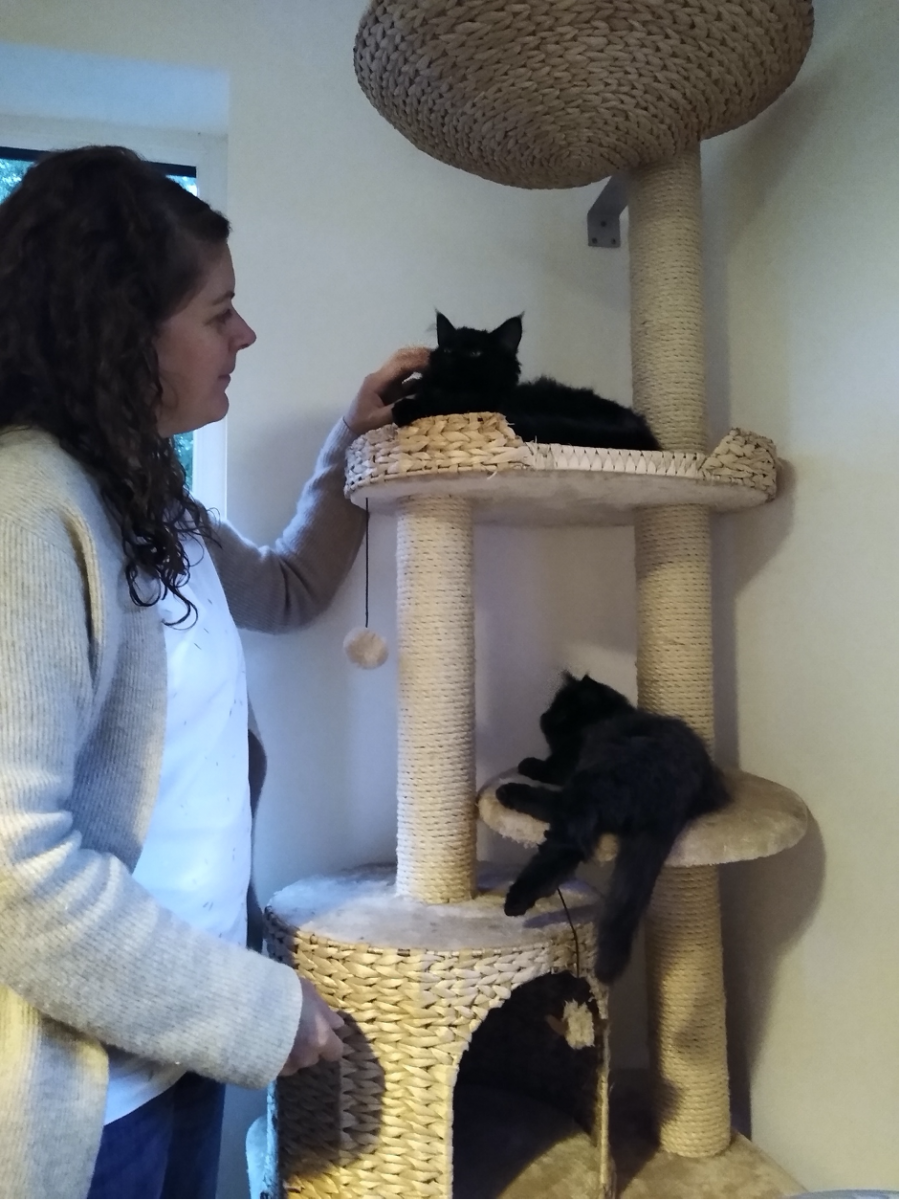
What happens when the kittens are ready for their new homes? What’s the current process?
Matching the kittens with the right owner is key for a lifetime home and to ensure expectations are matched. There is a lot of conversation between those within the organisation that run the homing side of the kittens, myself and prospective owners. The charity are fantastic and really accommodating and because of that, two of the kittens have found fantastic new homes. And of course, which one did I formally adopt…….the soppy cuddly boy, now named Tumbleleaf who likes to be in on every zoom meeting and every bedtime story with my boys – a truly perfect fit for our active and gregarious family.
Many people say they would struggle to give up their foster cats to new owners. What words of advice would you give them?
You need to go into it with the mindset that you are doing a job and you have the cat’s interests at heart now and throughout the whole process. As a fosterer you might be the right home for lots of cats, but not all at the same time – the cats certainly wouldn’t like that! If you have other people in your household, lay out the ground rules with them too and agree on them, For example, we knew we may adopt one of the kittens but just one, as we become bonded to them it was tempting to think could we adopt two but we stuck to our initial ground rules. Also, if you want to help lots of cats, not just the current one(s) in your care, then by letting them go to new homes, you make the space to foster again and every time, you learn many new things about cats, about people and I can honestly say it makes life richer.
